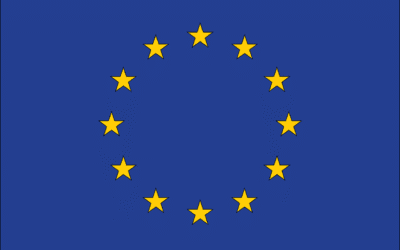Ariel Sharon’s enthusiastic support of a United States-led “road map” to an Israeli-Palestinian peace agreement, which ultimately will establish a patchwork Arab state comprised of areas within the West Bank and the Gaza Strip, caught many by surprise. Their astonishment is misguided. The ambition of the plan, though tenuous, is well intentioned. The farfetched utopian state it contends to deliver, however, is a delusion.
This road map, a precautionary semantic shift from the definitive ‘peace’ plan that holds such disastrous historically implications, was drafted by a international “quartet,” which in addition to the US, includes the United Nations, Europe Union and Russia. The plan calls for a three-step progression that would begin with a cooling of Israeli and Palestinian clashes and then an international peace conference a year from now. The creation of an interim Palestinian state would shortly follow and an effort to reach a final settlement, which would involve the status of Jerusalem, concluding by 2005.
According to most recent polls in Israel, there exists mainstream support for the formation of a Palestinian state — a continuous position held by Israelis since the ‘90s, when there was broad support for the regrettably shortsighted peace initiatives of the Yitzhak Rabin and Ehud Barak administrations. And while international peace conferences facilitated by the likes of the E.U., U.N. and Russia, typically spell turmoil for Israel, the specter of President Bush — to this point, one of the Jewish state’s great allies — in the backdrop, carries with it a level of legitimacy that Presidents Carter and Clinton, lightweights in the field of foreign policy, could never bring.
Yet, regardless of Sharon’s reputation as a hawk and his friendship with Bush, right-wing attacks against him have been widespread. The most potent accuse the former general of appeasing the United States as it attempts to pacify moderate Arab nations leading up to an eventual toppling of the Hussein regime in Iraq. Israel’s recent request for additional financial aid, including $10 billion, $4 billion of which would be sent in military assistance and loan guarantees of $6 billion, only fuels the fire.
At a conference commemorating the 1947 UN partition plan — a plan that would have granted the Palestinians a larger state that they now crave over 55 years ago — Sharon announced that American aid was unconditional and unconnected in any way to a diplomatic process that would culminate in a Palestinian state.
“In all friendly relations such as those between Israel and the US there is reciprocity,” Sharon said. “We ask the Americans for things, they ask us for things. But these requests are not exchanges of favors.”
While the benefit of the most significant of these “things,” a Palestinian state, has been broadly and ferociously debated since 1967, Sharon’s unambiguous view of the potential autonomous Arab state on its borders is something to behold:
“This Palestinian state will be completely demilitarized. It will be allowed to maintain lightly armed police and interior forces to ensure civil order. Israel will continue to control all entries and exits to the Palestinian State, will command its airspace, and not allow it to form alliances with Israel’s enemies.”
A nation devoid of an army, its borders and airspace controlled by a foreign nation, and its foreign policy effectively open to Israeli veto, is not exactly the embodiment of independence. Would Palestinians be willing to live in what England’s Guardian referred to as an “emasculated state?” Would Israel support the creation of another hostile Arab state on its borders, with a regime that has shown no interest in checking terror and violence since its inception? Would they trust this regime to establish the first demilitarized autonomous state in modern history?
What remains even more implausible than the utopian Palestinian entity envisioned by Sharon, are the conditions that are prerequisite for this serene state’s creation. First, the much-discussed ‘cooling-off’ period that is to witness a “complete cessation of terror.” Terror, or more to the point, the modern effort to commit acts of terror against Jews by Arabs, has not abated in the area since 1929’s massacre in Hebron, so an abrupt termination of terror seems more than unlikely. But only once this measure is met, would Israel lift military pressure, allowing Arabs to enjoy a “territorial continuity” that would enable “a Palestinian living in Jenin to travel freely to Hebron without encountering Israeli roadblocks… be it via a tunnel, bridge, or other means.”
Can Israelis trust the Palestinian Authority, a group likely complicit in terror itself, to restrain Fatah, Hamas, Hezbollah and a teeming array of terror groups active in the area with only “lightly armored” police force? If they even wanted to, which is far from a given, could the P.A. pacify a population that venerates the suicide bomber and terror, whose population is fed virulent state-sponsored anti-Semitism from its own media and Arab nations beyond its borders?
Sharon has also asked for political and security reforms within the P.A., a genuine effort to impede terror within its borders and massive reforms in the areas of education, media, anti-Israel incitement and the judicial system. The removal of Yassir Arafat, a well-known Sharon precondition for any talks, has also yet to be dealt with.
But then again, the road map neglects to deal with so much.
Originally published in Front Page Magazine.









